Apples to Apples
Cider houses rule: Texas ciders are on the rise with Argus Cidery and Austin Eastciders
It’s not just for thick-knuckled soccer fans to hook back in British pubs anymore. While sales of hard cider make up less than one percent of U.S. beer sales, store cash registers rang up 85 percent more sales of the fermented apple juice in 2012 over 2011, according to the research firm Information Resources Inc.
That trend is taking root in Texas, too. Even when you consider the blossoming craft beer and craft distilling scene in Austin, it’s a bit surprising that there are two cideries here, too. What? Cider made in Austin? You’d figure cider would be made in big apple growing states like Washington, Michigan and Virginia, but Texas?
It’s time for Texas cider. Argus Cidery and Austin Eastciders are making the first ciders in Texas since Prohibition.
Getting started at Argus Cidery
Just outside of Austin on the way to Dripping Springs sits an open, barn-like structure that houses the Argus Cidery tasting room. A gentle breeze eases into its wide entry and over the tasting bar, before spilling into a cozy sitting area where David Bowie’s Ziggy Stardust spins on a reproduction gramophone. Small groups of people sip cider at the back bar and at the three community style tables. The cozy setting, created by interior designer, Lilianne Steckel, makes for an easy place to spend an afternoon with a few glasses of Texas cider.
“We have amazing apples in Texas, but there is not great awareness that they were here,” said Wes Mickel, founder of Argus Cidery. “There are Texas apples with very special and [right] qualities to make the dry style cider we like. They aren’t traditional cider apples, but more cooking apples. Finding these apples was the catalyst for the business.”
Mickel incorporated Argus Cidery in April 2010, started production in July of that year and opened the tasting room in February 2013. He previously followed his passion for food, wine and beer while attending culinary school at Napa Valley’s Culinary Institute of America at Greystone, as a chef, wine blender and avid home brewer. Turning his hobby into a career seems to be working out.
“I’m having a lot of fun and we’re doing alright,” he said.
Mickel and cellar master, Jules Peterson, make vintage dated ciders and currently has five varieties on the market — including the rich and oaky Lady Goldsmith and single vineyard Cameo — selling for $20 for a 750 ml bottle. They have three releases every year. Each variety’s style has distinct flavors based on the particular apples used, but Argus adapts its processes to ensure each is dry and oaky.
The apples Argus uses make it different from the traditional English style ciders. Argus uses apples you might eat right off the tree, while traditional cider apples are far too astringent to put on your table. Another point of departure is that Argus uses native yeast for a bit of Texas flair.
The newest summer release, Idalu Brut, is made with north Texas gold delicious and yellow delicious apples and fermented using wild and champagne yeasts. Argus treats this cider like a sparkling wine, by letting it go through malolactic fermentation after primary fermentation and finishing with a dosage to bring out the bubbly in the bottle. The result is a cider that is reminiscent of an aromatic cava with a tart and tangy apple kick and plenty of carbonation to give it a refreshing summer feel.
“It’s not sweet at all, like you might expect if you are a fan of cider,” said Mickel. “The apples don’t add a lot of bouquet on their own, but the oak aging, wild yeasts and natural bacteria give it the aromatics.”
Argus made 365 cases of Idalu Brut and it will begin showing up on store shelves soon at places like Antonelli’s Cheese Shop.
Argus is currently available mostly in Austin with some distribution in Dallas and Houston, but that could change soon. As the cidery expands, broader availability in Texas, as well as other states, is on the horizon.
Argus has grown from making 150 cases in the first year to 1,200 cases in the third year and hopes to grow to 5,000 cases in the near future.
Austin Eastciders brings cider to the East Side
Ed Gibson, founder of Austin Eastciders, grew up in Bristol in the southwest of England, which is known as the “Cider Capital of the World.” “There is more cider consumed in Bristol than anywhere else in the world,” said Gibson. “It’s a cultural part of the area, and I grew up in that environment.”
In Bristol, Gibson realized that cider was about to have a renaissance, so he jumped on the opportunity by opening a specialist cider pub on an old Dutch barge. He eventually tired of the dreary English winters and decided to bring his cider knowledge to the U.S.
After visiting Austin, he fell in love with the friendly people, the music, the culture and outdoor living and decided he wanted to be here. Soon after, the idea for Austin Eastciders was born.
“When I moved here, I decided that the market for cider was about to take off,” he said. “It became an obvious thing to take to a party in Austin. It felt like a fun, great thing to do in Austin that could also pay the rent.”
Gibson is a fan of traditional unfiltered, cloudy, still ciders made with wild yeast and spontaneous fermentation. He believes that the finest ciders in the world are made that way, using cider apples.
“Real cider apples are distinctly different from eating apples, in that they have higher acidity and tannins,” said Gibson. “If you ate them, they would be too astringent and dry your mouth out. Those qualities make a perfect, smoother, drier, more complex cider than eating apples do. Cider apples give more depth of flavor. The best ciders are made with as wide a variety of cider apples as you can get your hands on.”
Getting Austin Eastciders off the ground has been a bit of a process. Gibson initially worked with Martin Rich, his favorite cider maker in England to make his first batches of Gold Top Cider using Texas apples, which he shipped to the United Kingdom and blended with old English cider varieties. That first run of Gold Top was a hit and it quickly sold out in places like the East Side Show Room, Alamo Drafthouse and Foreign & Domestic.
Since then, Gibson has been working through visa and regulatory issues to prepare for his new site on Springdale Road. He plans to open the new Austin Eastciders venue, which will house the facility and a tasting bar, in September 2013. It’s a unique location with a historic railway station and length of track tucked away next to huge warehouse. It gives the place a rustic charm that matches the Eastciders' brand.
“Cider was the most popular drink in the U.S. before Prohibition,” said Gibson. “It has a rich history. I worked with Simon Walker, a fantastic designer, to create a brand identity around that. It’s about rediscovering the traditions of cider in [this] country.”
Austin Eastciders aims to make cider with bittersweet American heirloom cider apples, grown in southern orchards. The plan is to use Winesap apples grown in Idalou, Texas, and Arkansas Black apples grown in Virginia along with some Texas desert fruit and United Kingdom cider apples. Gibson describes Gold Top Cider as a modern take on traditional style cider that is carbonated and filtered, but using wild yeast.
“It’s a great fit with Texas barbecue. The first time I had barbecue, I lost my mind. I’m an addict. It’s a match made in heaven with cider, which loves to be paired with robust food. In that way it’s a great alternative to a craft beer.”
Austin Eastcider will be available on draft for about $5 a pint in late September. Watch for notices of advanced sampling parties on the company’s Facebook page.
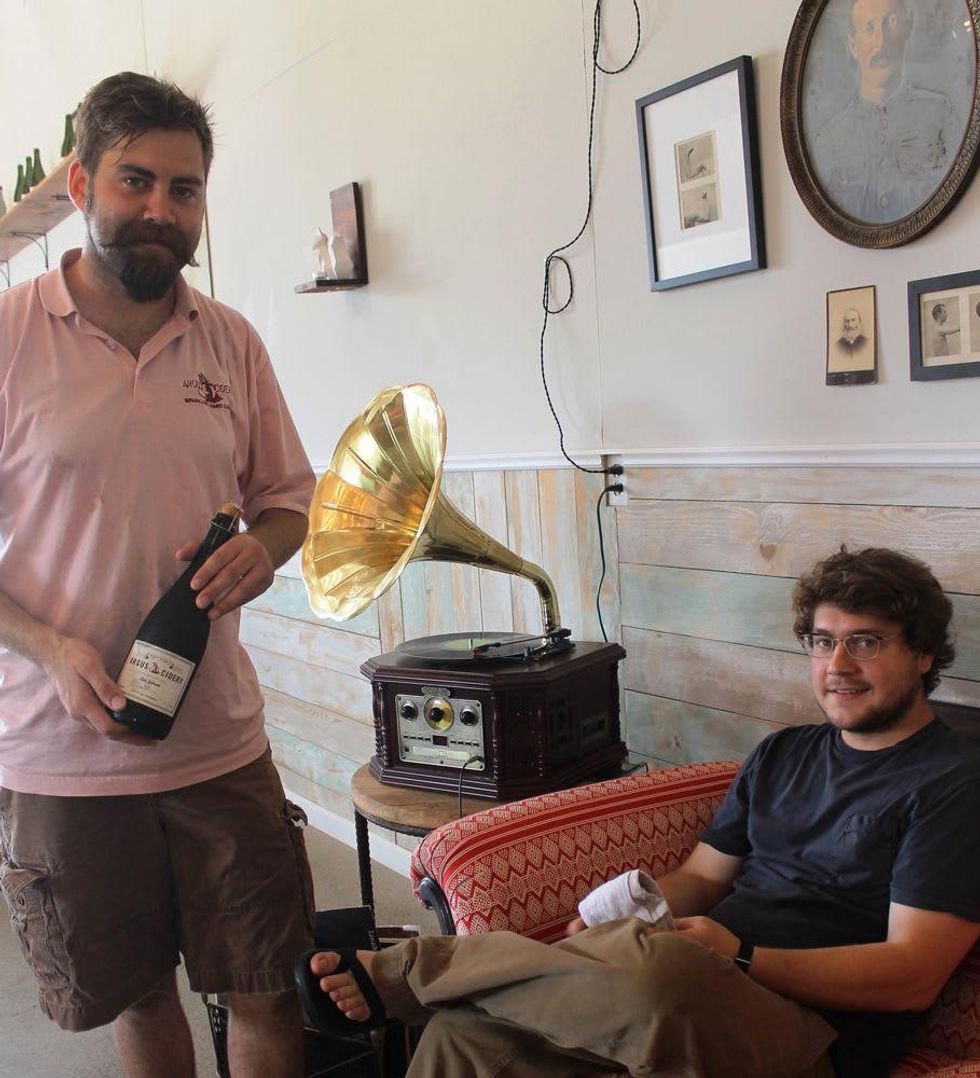
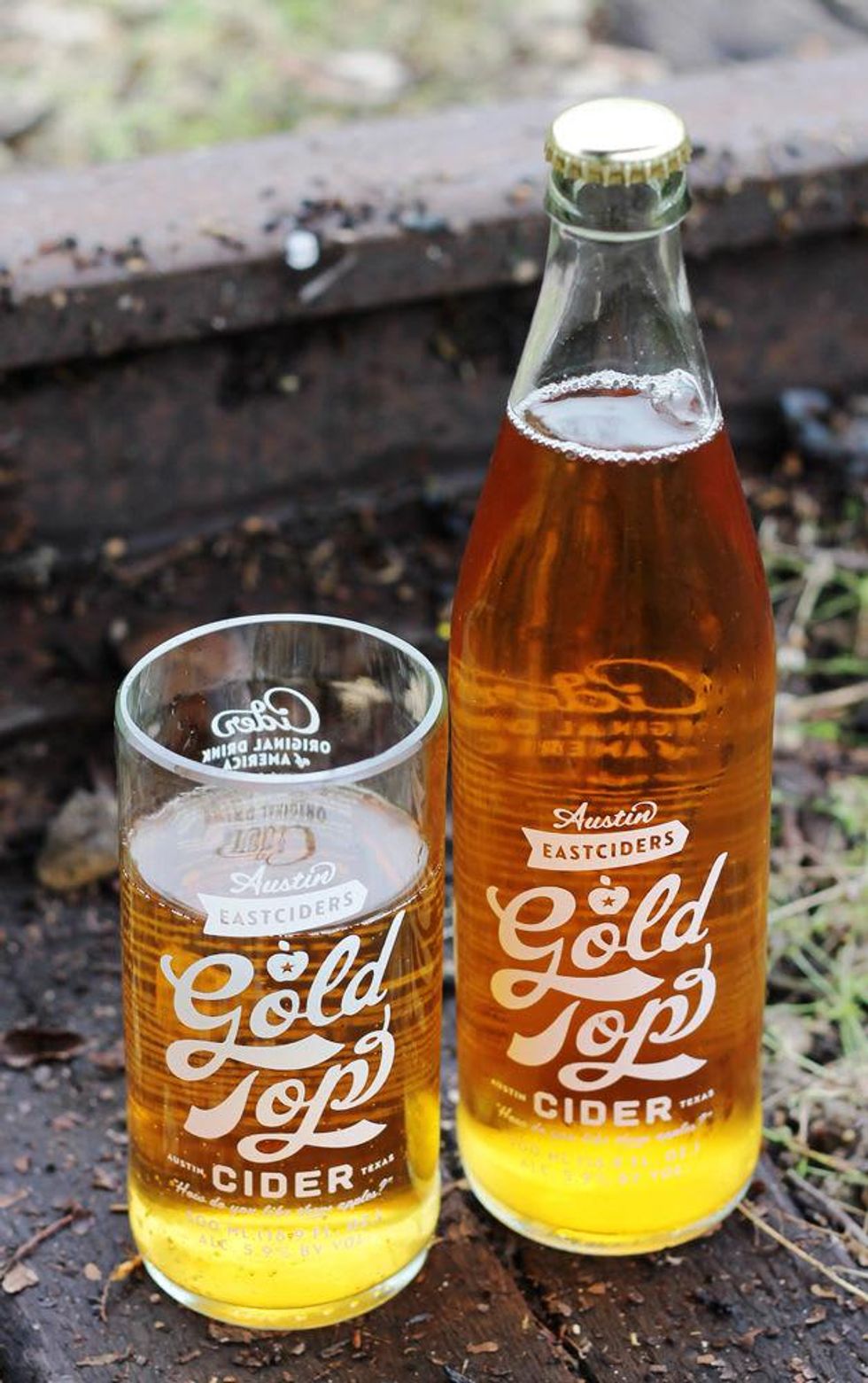
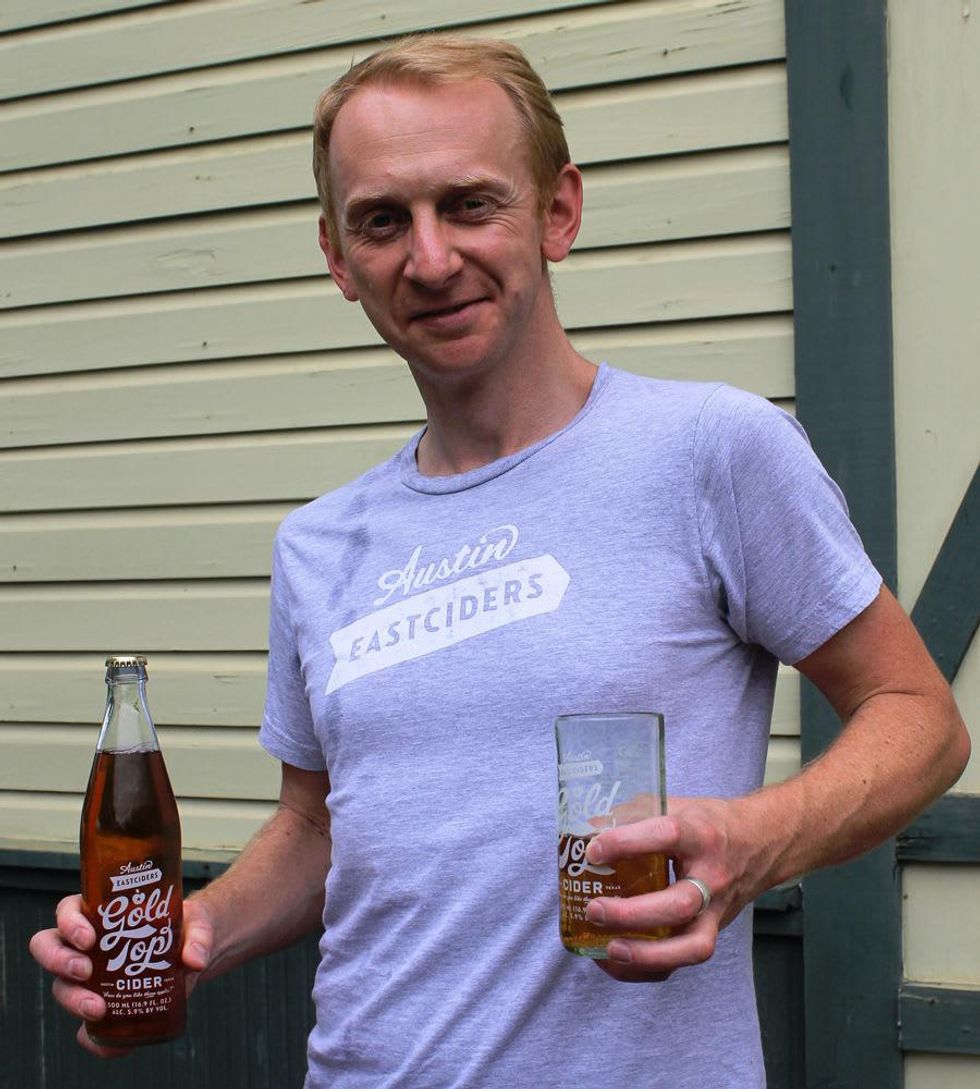
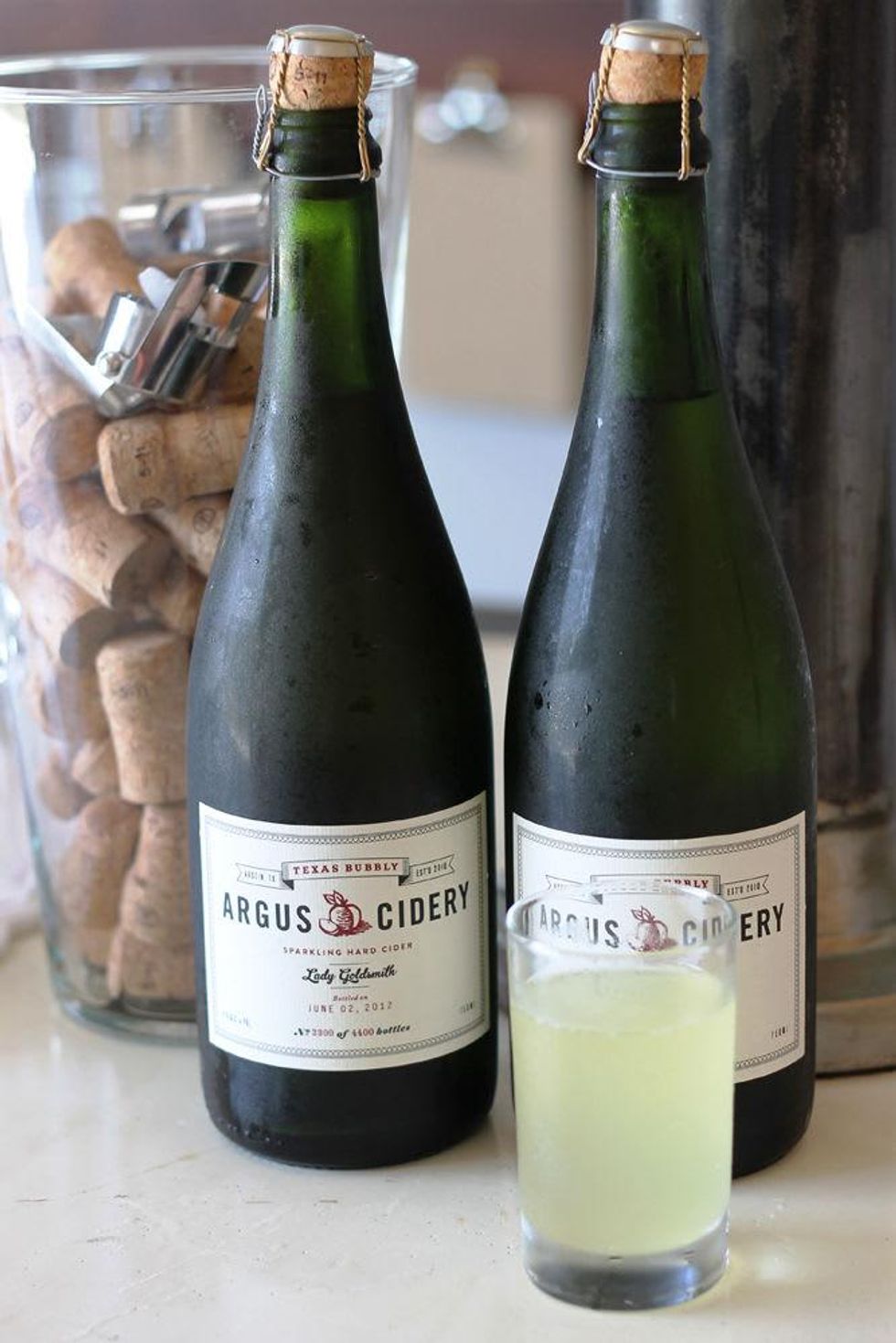
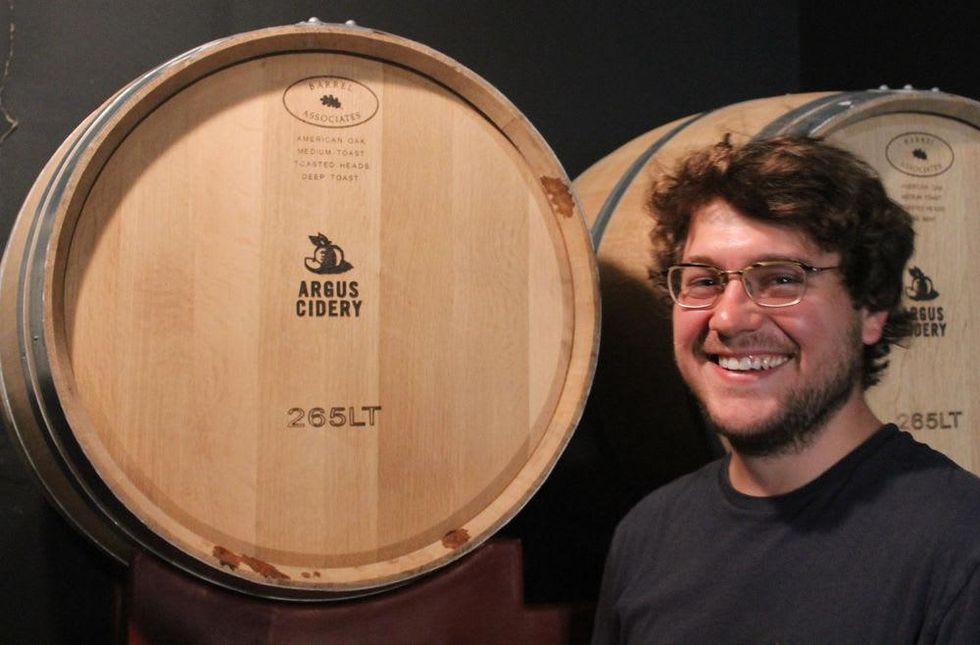

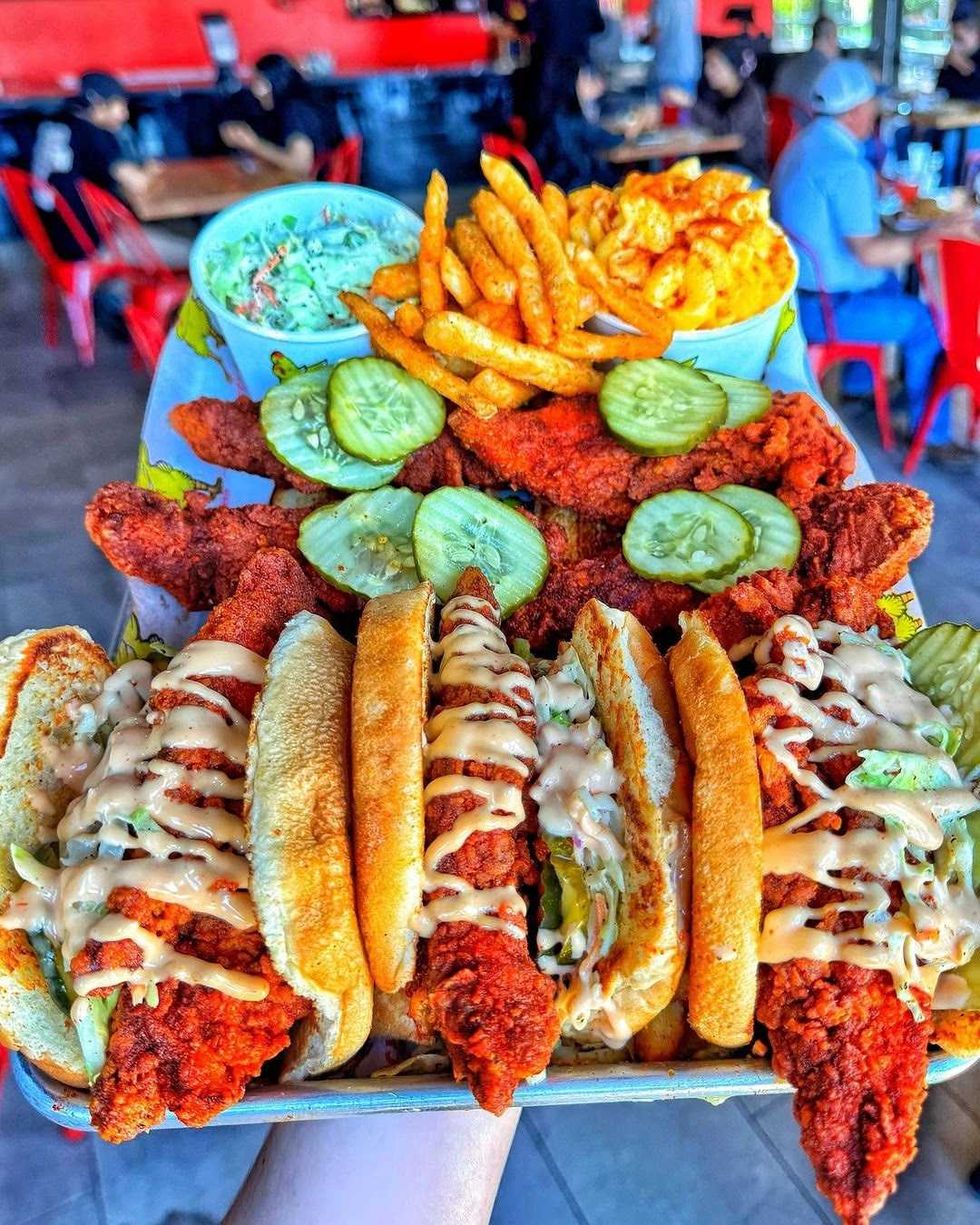 A very saturated look at spicy chicken and sides.Photo courtesy of Angry Chickz
A very saturated look at spicy chicken and sides.Photo courtesy of Angry Chickz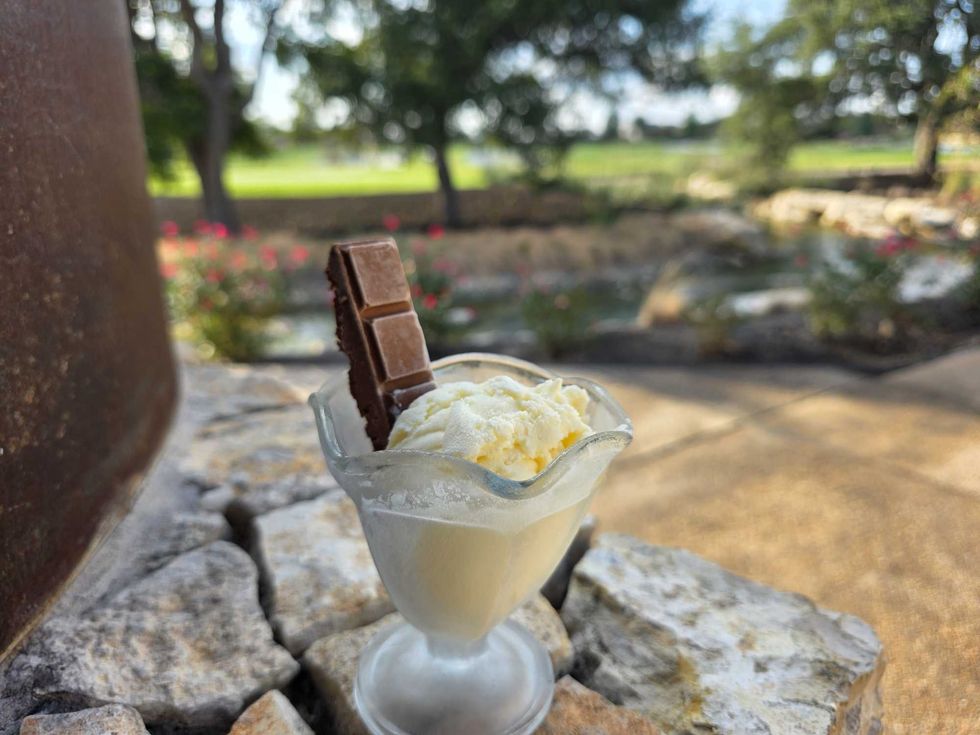 Cape Bottle Room is pairing ice creams and wines December 9.Photo by Jack Fanelli
Cape Bottle Room is pairing ice creams and wines December 9.Photo by Jack Fanelli